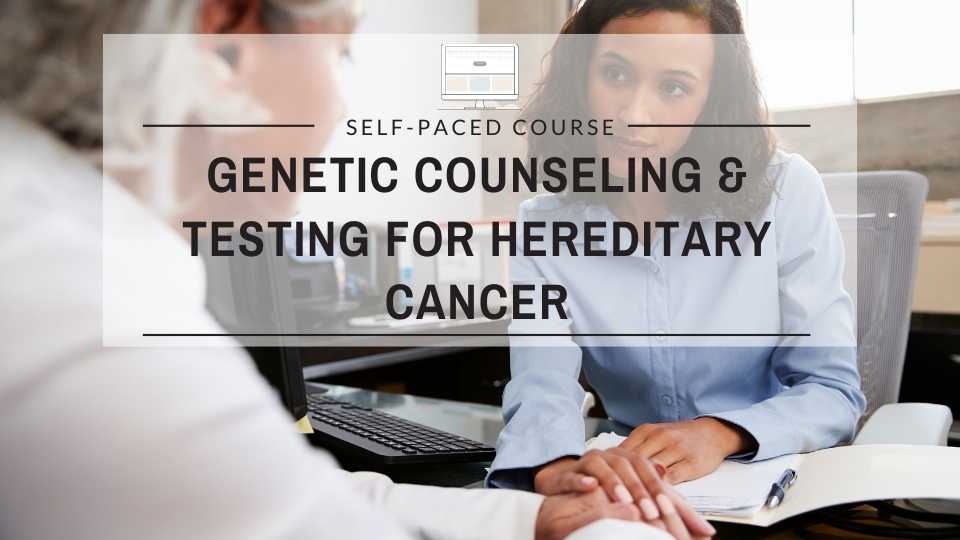Identifying individuals at high risk for hereditary cancer is an important public health issue. Genetic counseling and testing can help identify individuals with genetic mutations to help them identify personal and family risks, navigate prevention and early detection of hereditary cancer, and guide individualized treatment options for individuals with hereditary cancer. Health departments can provide information to patients and providers on what hereditary cancer is and the importance of genetic counseling and testing.
Learning Objectives:
- Describe hereditary cancer and hereditary cancer syndromes, including how they are inherited and the increased risk of cancer an individual with a hereditary cancer syndrome has.
- Define genetic counseling and genetic testing and discuss the benefits and limitations of testing.
- Discuss the public health implications, policies, and guidelines surrounding genetic counseling and genetic testing related to hereditary cancer.
- Discuss measures health departments can take to raise awareness and reduce the morbidity and mortality of hereditary cancer.
Target Audience: Health Care Professionals, Health Departments, Public Health Professionals
Duration: 1 hour
Continuing Education Information: 1 CECH for CHES
Format: Web-based Training, Self-Study
Created/Updated: January 2021
Author(s)/ Presenter(s): Alexa Rosenblum, MS, CGC; Caitlin Meyer Krause, MPH
Arranged by: Caitlin Meyer Krause, MPH; Instructional Specialist
